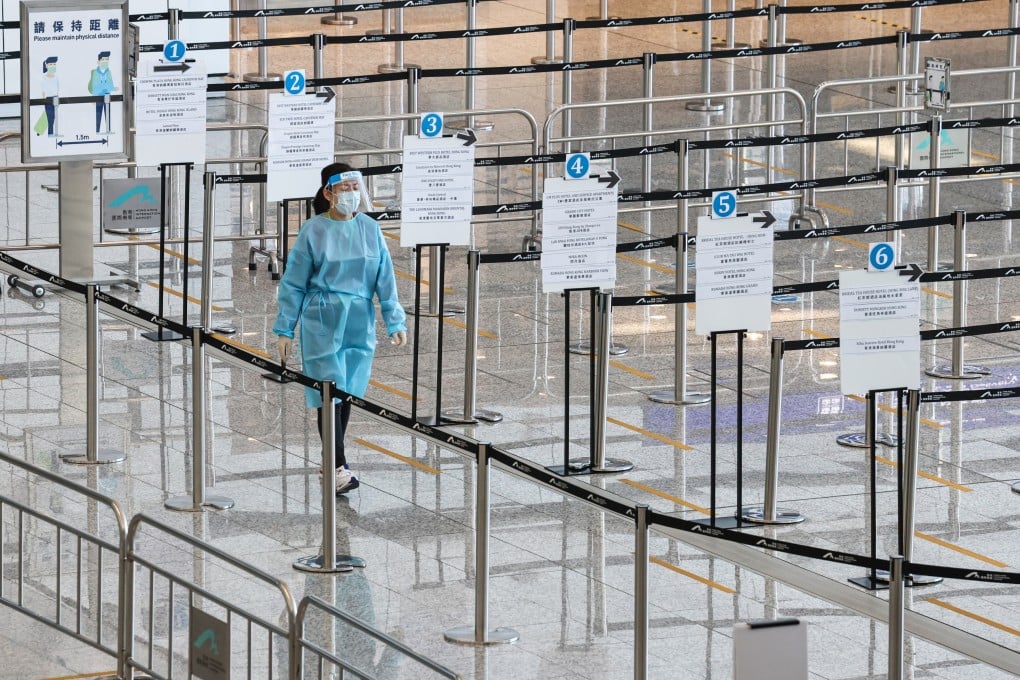Coronavirus Hong Kong: Omicron variant must be kept out of community, experts say; city confirms 3 new cases
- Government adviser David Hui says quarantine hotels should step up their efforts to prevent cross infections, but further travel restrictions are not needed yet
- However, infectious disease expert Leung Chi-chiu says further flight bans may be necessary, and that the government should discourage travel

First detected in Botswana, southern Africa, the Omicron variant has since cropped up in South Africa, Israel, Germany, Italy and Britain, with Hong Kong also recording two cases picked up in a quarantine hotel earlier this month.
However, experts were divided on Sunday as to whether more travel restrictions were needed to prevent the variant from slipping into the local community.
“Hong Kong’s long hotel quarantine means we probably don’t have such a big problem,” said government pandemic adviser Professor David Hui Shu-cheong, who pointed to an analysis of imported cases by the Department of Health that found 92 per cent were detected by the first week of isolation and 99 per cent by the second.
“The key is there cannot be transmission within the quarantine hotels, there really need to be precautions against airborne transmission.”
More air filters should be installed in corridors, and patients should not open their doors if their windows were ajar to prevent air currents sweeping virus-bearing respiratory droplets into hallways, he said.
Governments across the world have responded to the new B.1.1.529 variant – first reported to the World Health Organization on November 24 by South Africa – by imposing stricter border controls, including outright travel bans against several countries on the continent.
